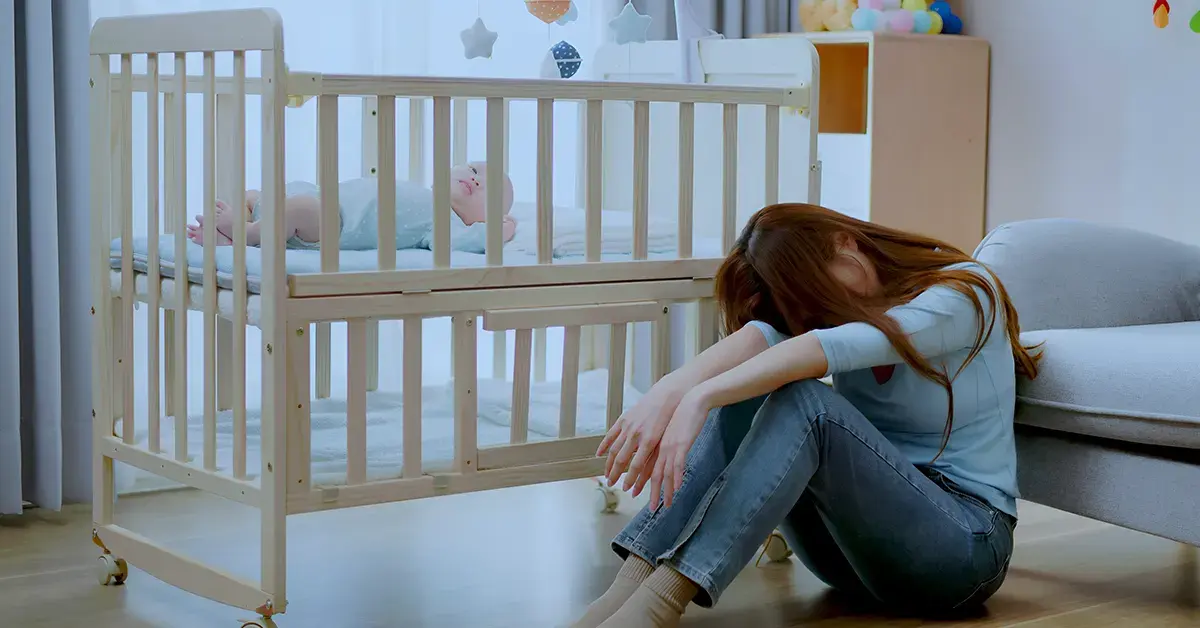Having a baby is an exciting time in a person’s life, but it can also bring unexpected emotional challenges. One of these challenges is postpartum depression (PPD), a type of depression that occurs after childbirth. It affects millions of new mothers around the world, but with the right support and treatment, it can be managed. Let’s analyze postpartum depression, its causes, symptoms, and treatments.
What Is Postpartum Depression?
Postpartum depression is a mood disorder that affects women after they give birth. While it is common for new moms to have emotional ups and downs, postpartum depression extends beyond what is often known as the “baby blues. “Unlike baby blues, which usually disappear on their own after a few weeks, postpartum depression can last much longer and requires treatment. PPD can affect any mother, regardless of her background or experience. It can also occur after the birth of any child, not just the first one.
What Causes Postpartum Depression?
There is no single cause of postpartum depression. It’s believed to be caused by a combination
of physical, emotional, and hormonal factors, such as:
● Hormonal Changes: After giving birth, there’s a sharp drop in hormones like estrogen and progesterone. This quick adjustment has a possibility to affect your mood.
● Lack of Sleep: Taking care of a newborn often means sleepless nights, which can take a toll on your mental health.
● Stress: Adjusting to a new baby, especially for first-time mothers, can be overwhelming. The stress of caring for a newborn can lead to feelings of depression.
● Personal History: If you have previously had depression or anxiety, you may be more likely to develop postpartum depression.
Symptoms of Postpartum Depression
Although each individual experiences postpartum depression differently, common symptoms include:
● Feeling Sad or Empty: You may feel unfortunate, hopeless, or emotionally numb.
● Crying a Lot: Even if nothing is wrong, you may cry frequently.
● Loss of Interest in Activities: Things that used to bring you joy may no longer seem enjoyable.
● Trouble Bonding with Your Baby: Some mothers with PPD feel disconnected from their baby or have difficulty forming an emotional bond.
● Irritability and Anger: You might feel unusually irritable or angry, sometimes without a clear reason.
● Fatigue or Loss of Energy: Constant tiredness or lack of energy is common, even if you get enough rest.
● Difficulty Concentrating: You may find it hard to focus, make decisions, or remember things.
● Changes in Appetite: You may eat more or less than usual.
● Thoughts of Harming Yourself or Your Baby: In severe cases, mothers may have thoughts of harming themselves or their babies. This is a medical emergency that demands immediate attention.
Who Can Get Postpartum Depression?
Postpartum depression can affect anyone who has given birth, regardless of age, race, or
background. However, some factors can increase the risk, such as:
● A history of mental illness or depression, either personal or familial.
● Having had postpartum depression with a previous pregnancy.
● Experiencing complications during birth or with the baby’s health.
● Lack of support from family or friends.
● Financial or relationship stress.
Treatment for Postpartum Depression
If you think you have postpartum depression, it’s important to seek help. Fortunately, postpartum
depression is curable. Common treatments include:
● Therapy: Understanding and controlling your emotions might be helpful by speaking with a therapist or counselor.
● Medication: In some cases, doctors may prescribe antidepressants to help balance your mood. These medications can take time to work, so it’s important to follow your doctor’s instructions.
● Support Groups: Joining a support group can connect you with other mothers going through similar experiences. Talking to others who understand what you’re feeling can provide comfort.
● Self-Care: Taking time for yourself is crucial, even if it feels difficult. Try to rest when you can, eat healthy meals, and engage in activities that help you relax.
● Exercise: Physical activity can boost your mood. Even a brief walk can make a difference.
Can Fathers Experience Postpartum Depression?
Yes, while it is more common in mothers, fathers can also experience postpartum depression. Financial concerns, sleep difficulties, and the stress of adjusting to a new baby can all lead to male postpartum depression. Fathers who experience depression should seek help just like mothers.
The Importance of Seeking Help
If you suspect that you or someone you know has postpartum depression, it’s essential to seek help as soon as possible. Ignoring the signs of PPD won’t make it go away. With the right support and treatment, it’s possible to feel better and enjoy life with your new baby.
Postpartum depression is a common yet significant disease that many new moms experience. Understanding the symptoms, risk factors, and treatment options can make a big difference. If
you or someone you love is experiencing postpartum depression, remember that help is available. If you need support , speak with your doctor or a mental health professional. By raising awareness about postpartum depression and breaking the stigma surrounding it, we can ensure that every new parent gets the care they deserve.
